In Nepal there are 29 million people. Every year the country sees 500,000 leaving annually for work abroad. A hard life farming the
fields and few opportunities in the city compels people to seek better prospects elsewhere. For many, hard labor in Gulf countries becomes the only option, often returning home with considerable debt and broken promises from foreign employers. Some lose their lives. Others seek status abroad, as companies advertise with “opportunities in USA, CANADA, AUSTRALIA”, as seen on billboards. Ambitious students go abroad for university and later for work, called ‘brain drain’ by Nepali media. It’s estimated that 25% of Nepal’s income consists of money transfers from migrant workers, many of whom wish to support their families back home.
fields and few opportunities in the city compels people to seek better prospects elsewhere. For many, hard labor in Gulf countries becomes the only option, often returning home with considerable debt and broken promises from foreign employers. Some lose their lives. Others seek status abroad, as companies advertise with “opportunities in USA, CANADA, AUSTRALIA”, as seen on billboards. Ambitious students go abroad for university and later for work, called ‘brain drain’ by Nepali media. It’s estimated that 25% of Nepal’s income consists of money transfers from migrant workers, many of whom wish to support their families back home.
What do Nepali children think about their future?
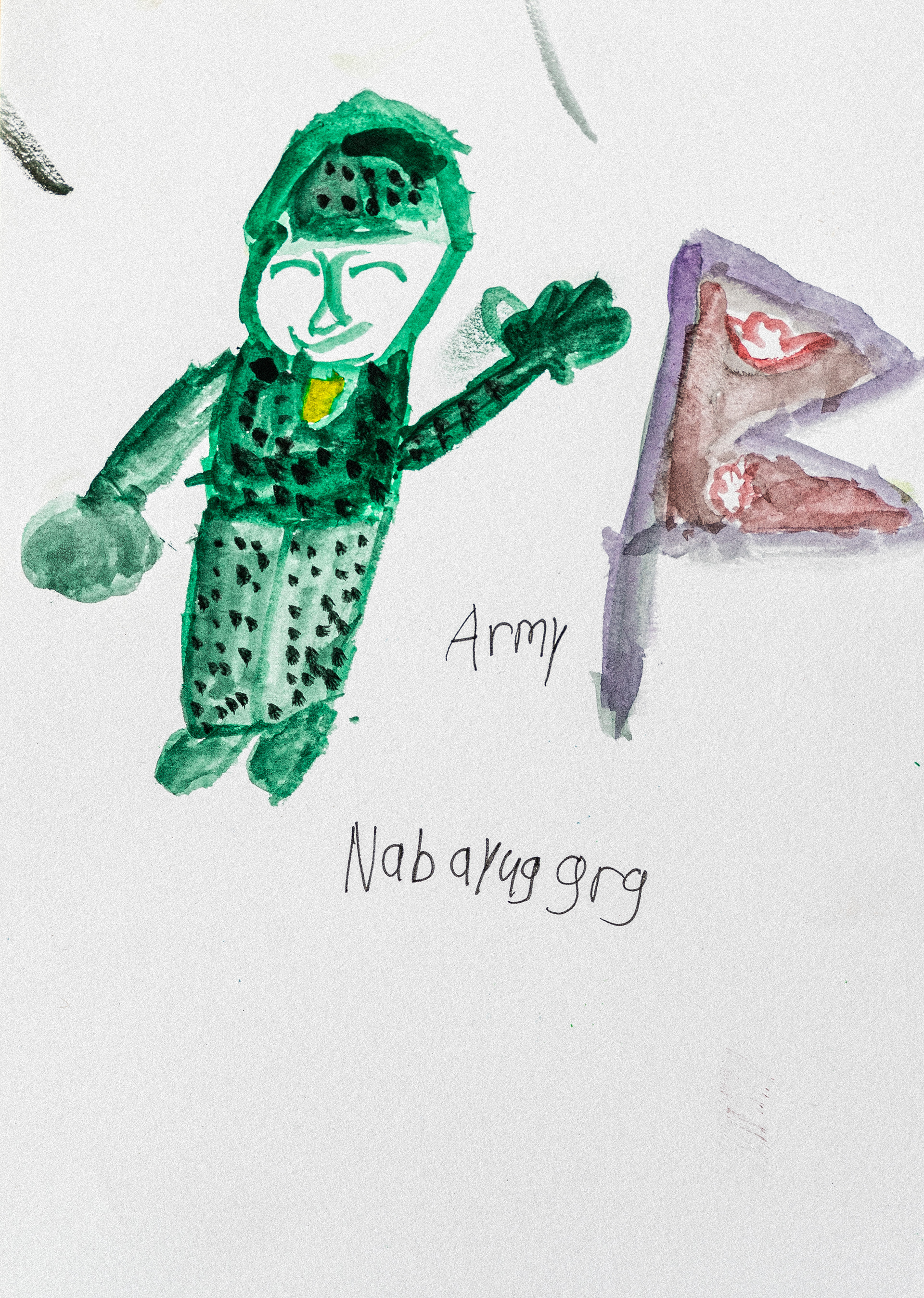
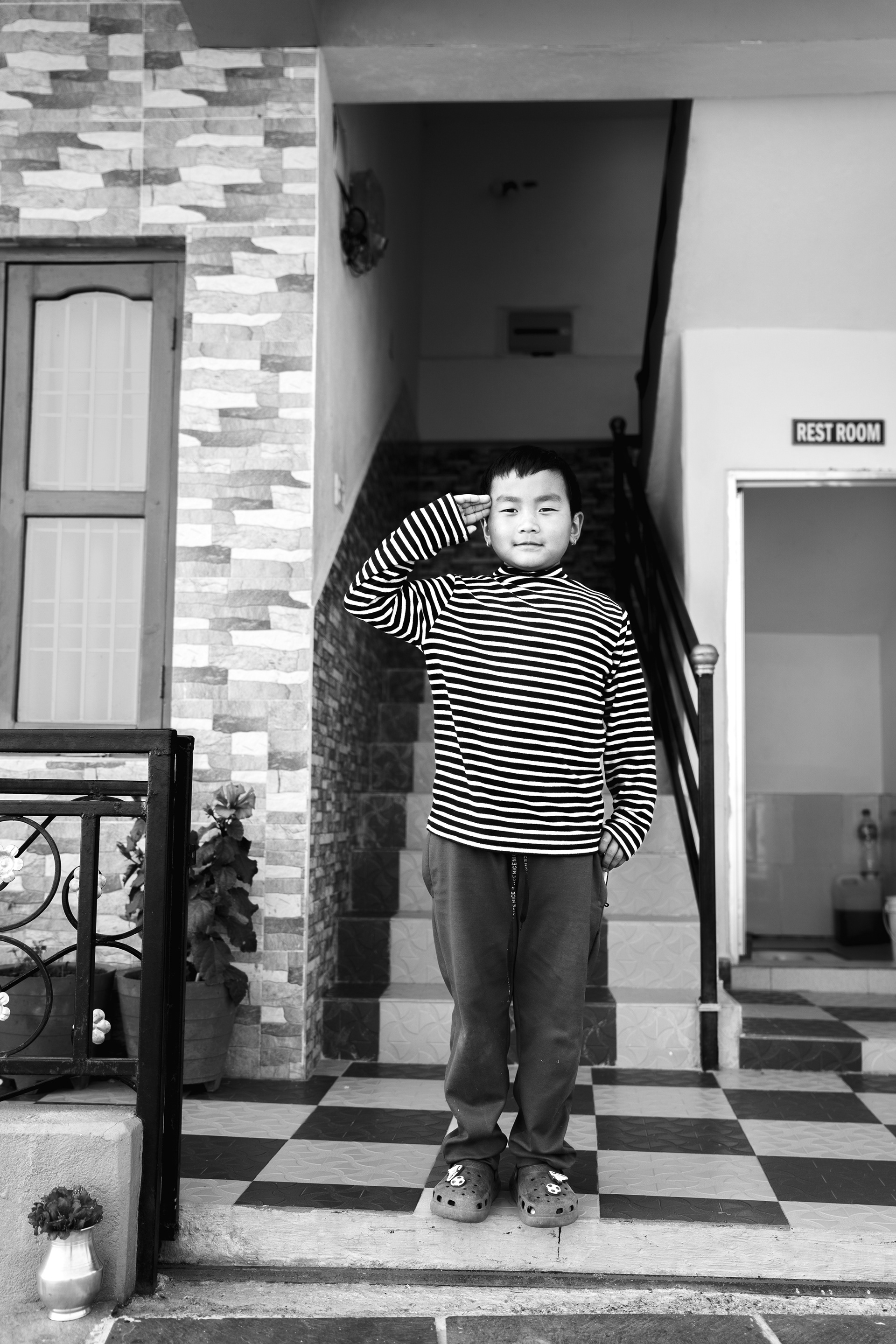
Nabay’s (8) parents own a big hotel with a 360° view of the Annapurna mountains. He doesn’t think twice; he wants to be in the army.

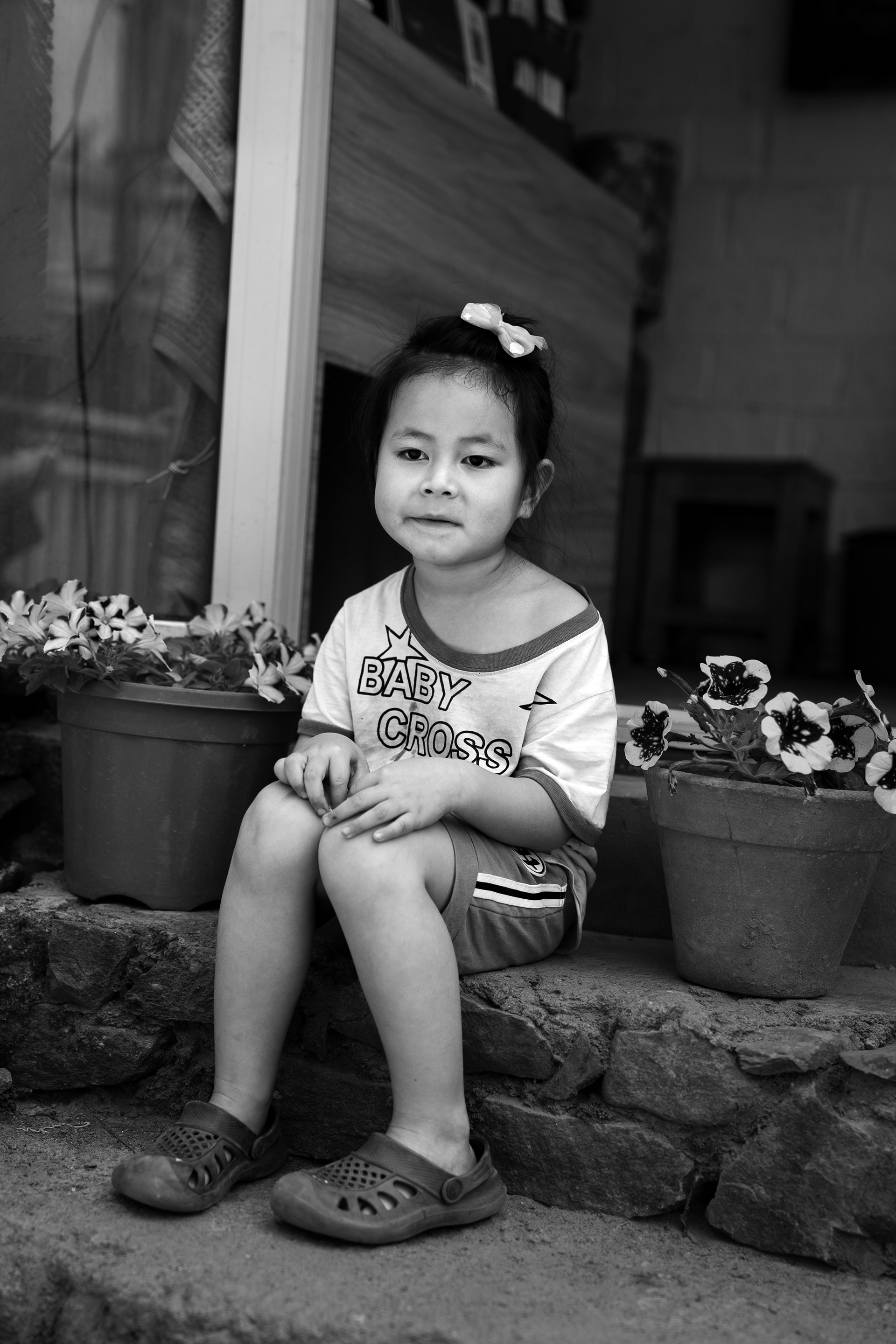
Emily (4) says she wants to be police.
A few minutes later, she wants to be a doctor but insists on drawing shapes. Two drawings of shapes later, she’s set on being an artist
A few minutes later, she wants to be a doctor but insists on drawing shapes. Two drawings of shapes later, she’s set on being an artist

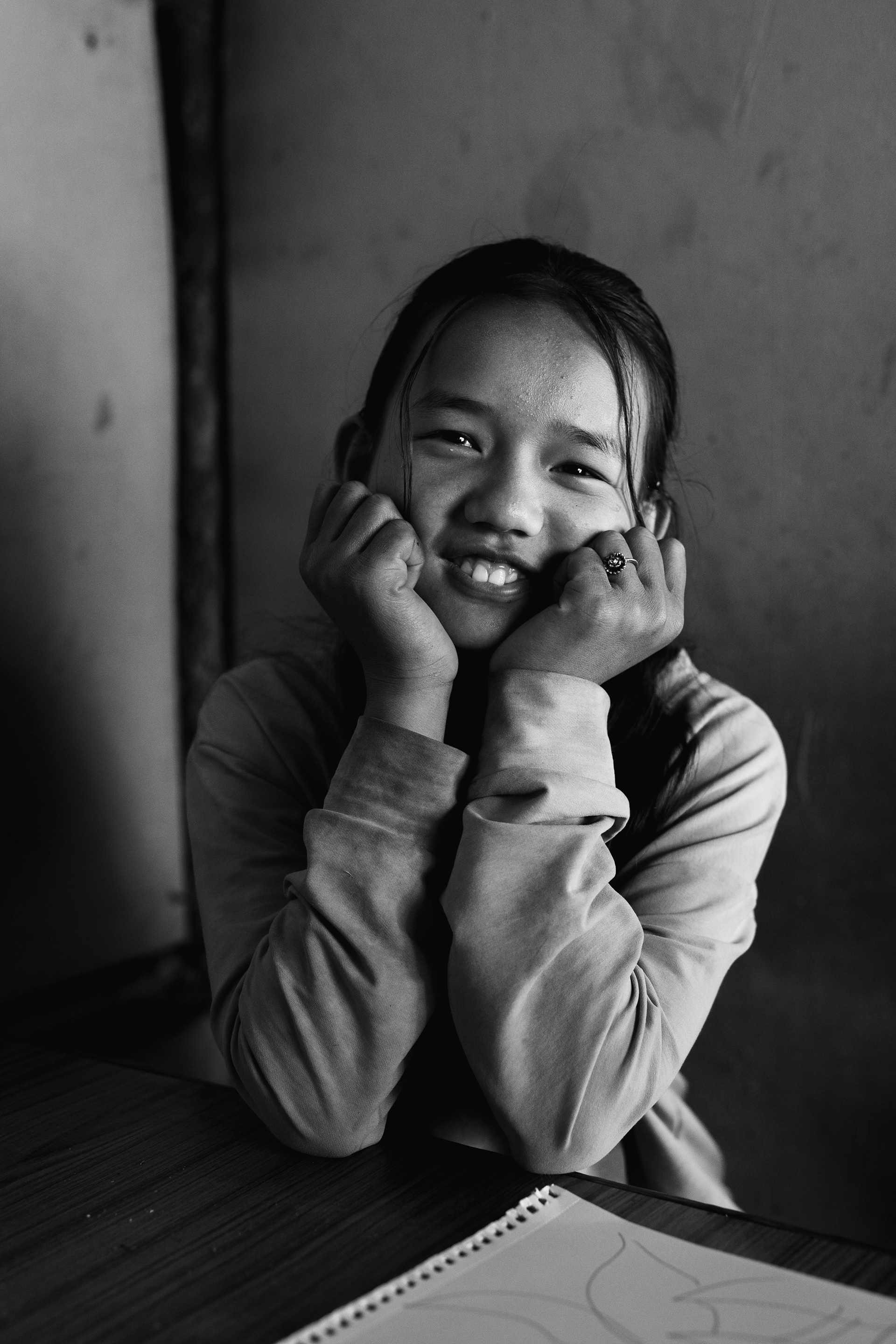
Maya (13) is working, so she doesn’t have time to draw. The following day, she’s also working, but now her parents will allow it. At first, she wants to be a painter, but she soon changes her mind. She wants to be a dancer.
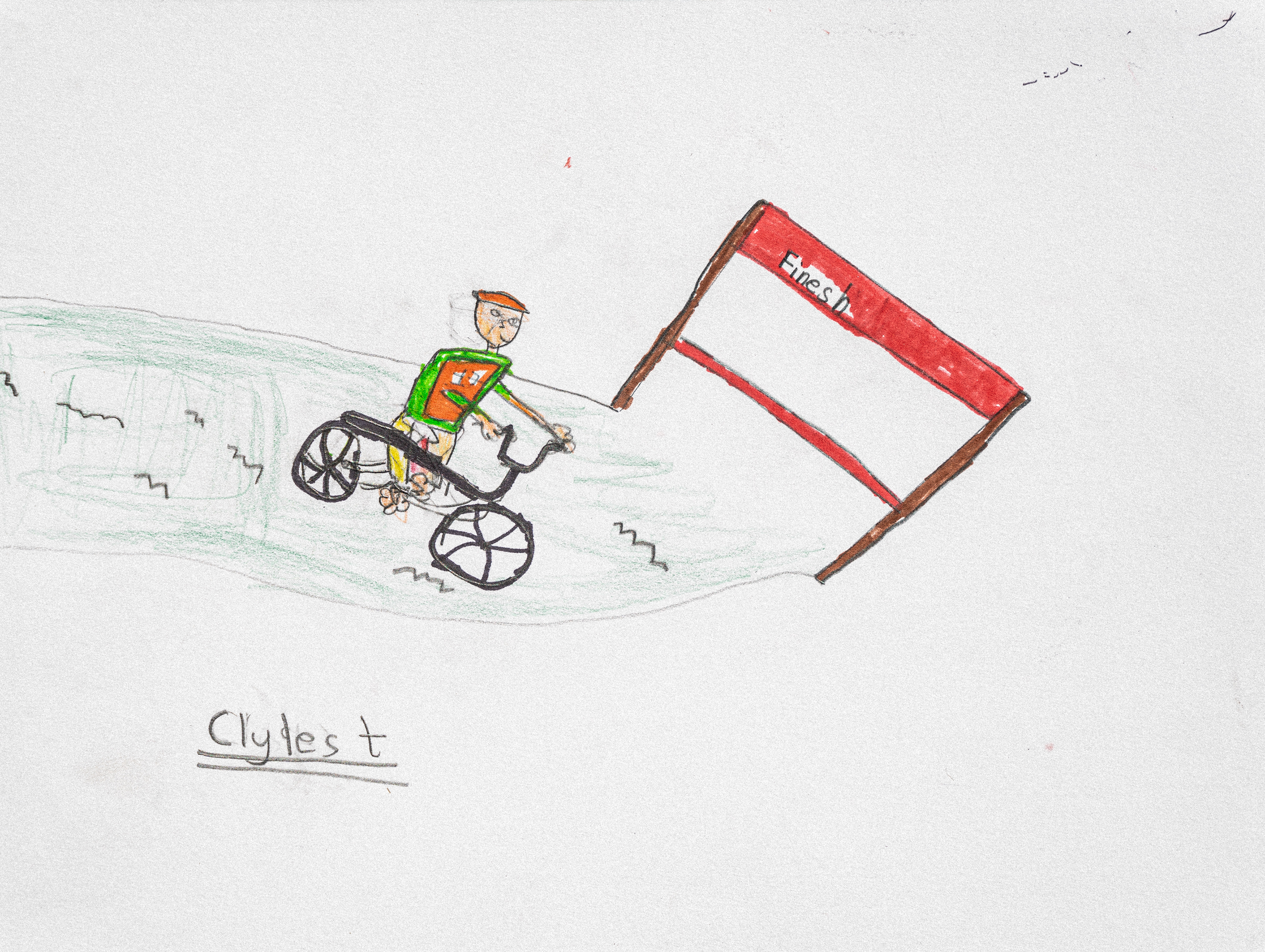

Rajesh (10) wants to be a terrain cyclist, hitting big jumps like they do on YouTube. According to Rajesh, his dad is a cyclist. In reality, his dad is a blacksmith in Kathmandu, but he did fix a bicycle once.

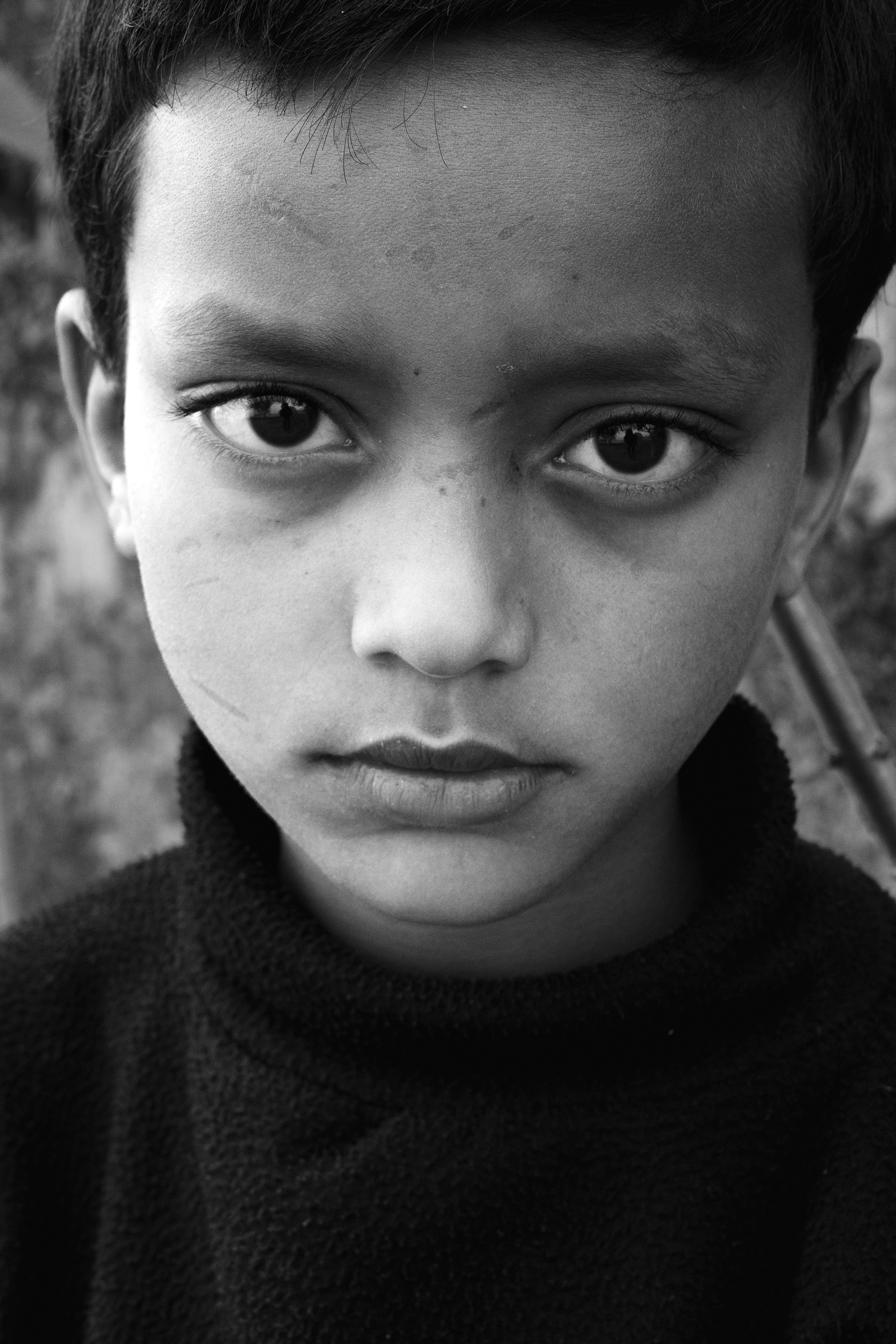
Aayush (8) also wants to be in the army. His mother works farming in the village, and his father is away in the city

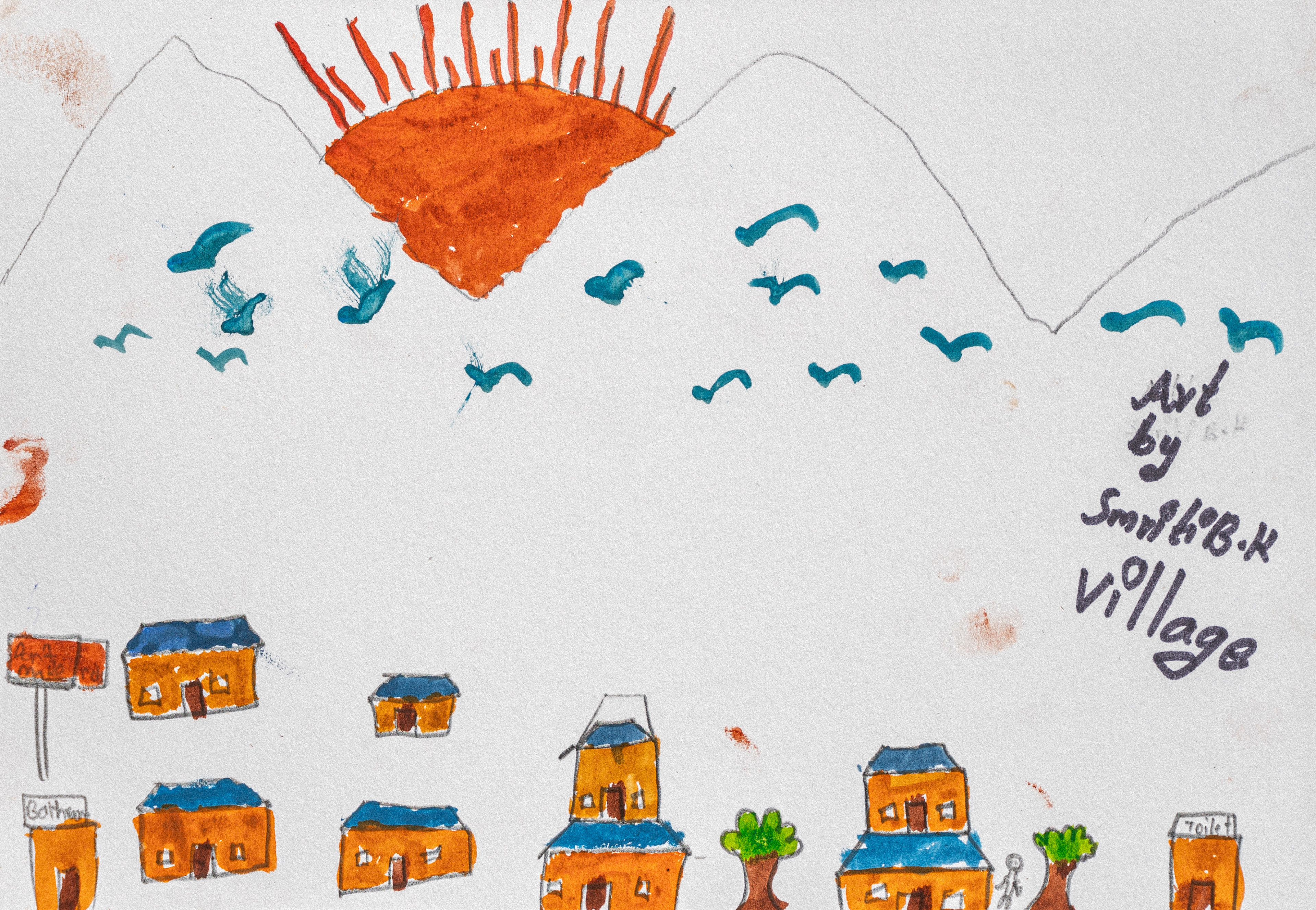
Smriti’s (10) father wants her to become a lawyer. She says her father works in
a bakery in Qatar, making pastries. She doesn’t know if lawyers work in an office
a bakery in Qatar, making pastries. She doesn’t know if lawyers work in an office

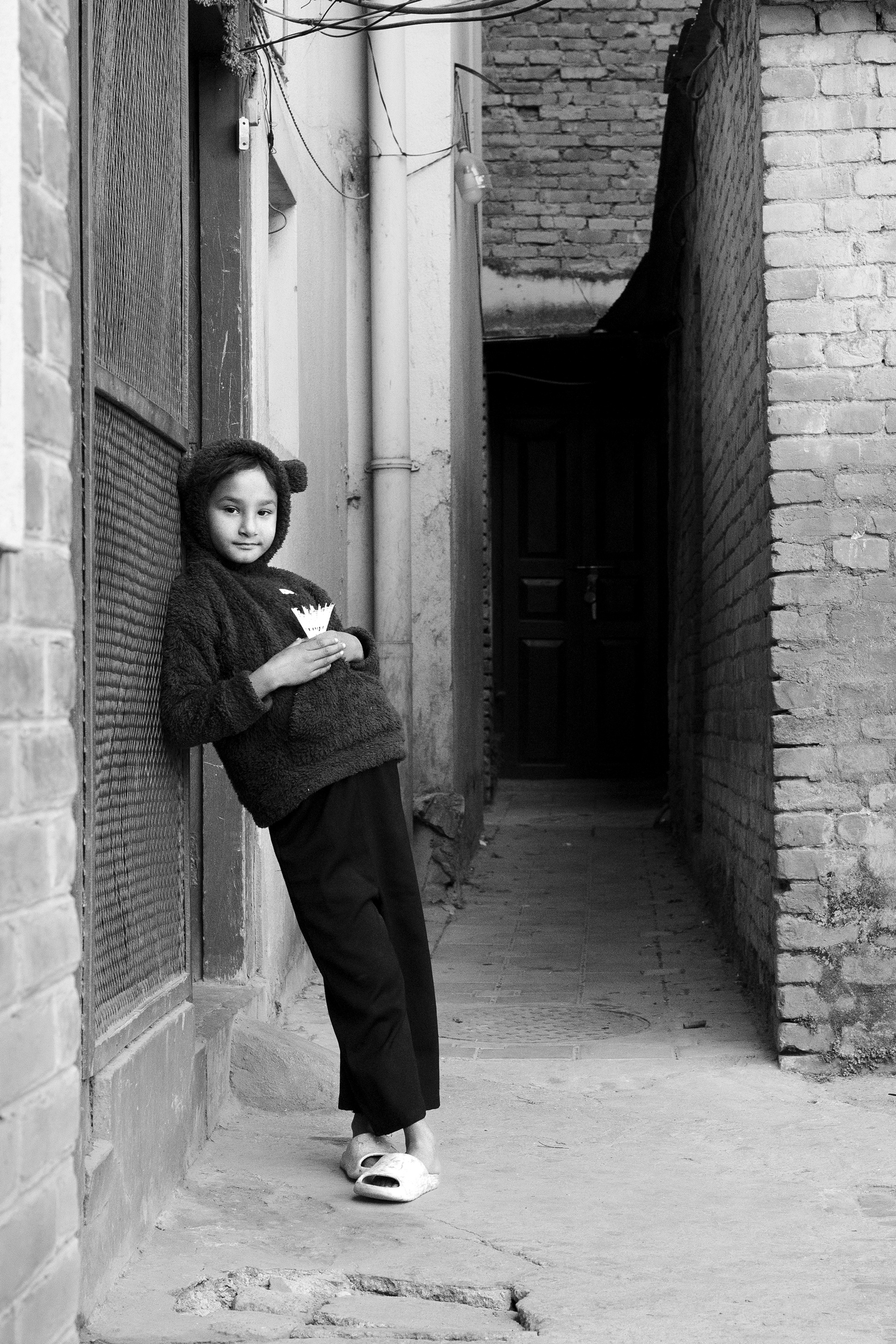
Mausami (8) says she wants to be an actor. The following day, she says she wants to be a doctor. She has never been to a hospital, but she draws it anyway.
Mausami’s mother had just started her own business, making saris to pay for her tuition. For many years, her father worked in Gulf countries, bringing trauma back home. The loan necessary to send him abroad is still a burden for Mausami’s parents. They will have to sell their land in the village to pay off the loan. Mausami’s mother is hopeful about her daughter’s future.


Nirjala (15) doesn’t know what she wants to do in the future, so she draws her kitchen. She likes to spend time with her family.
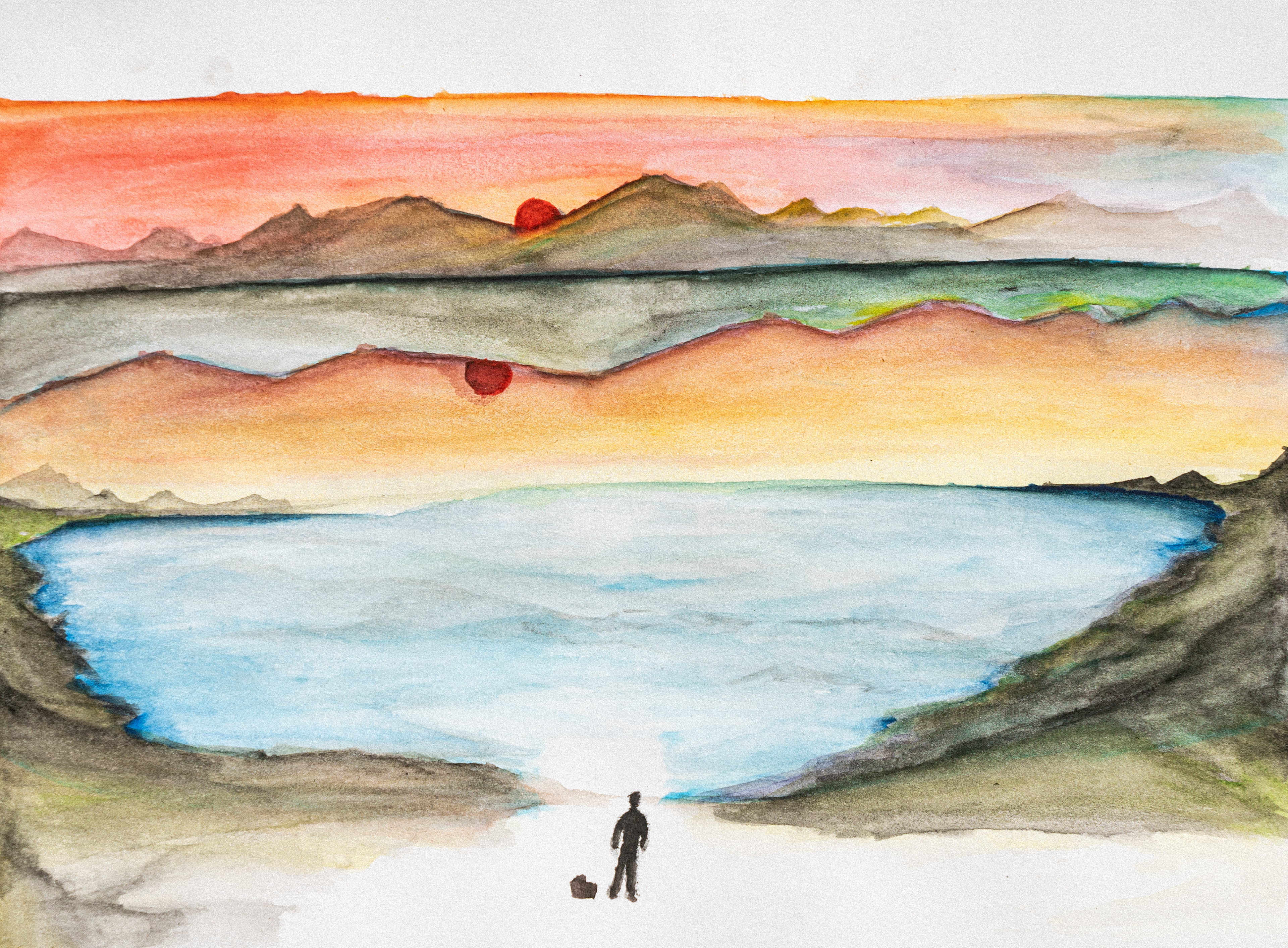
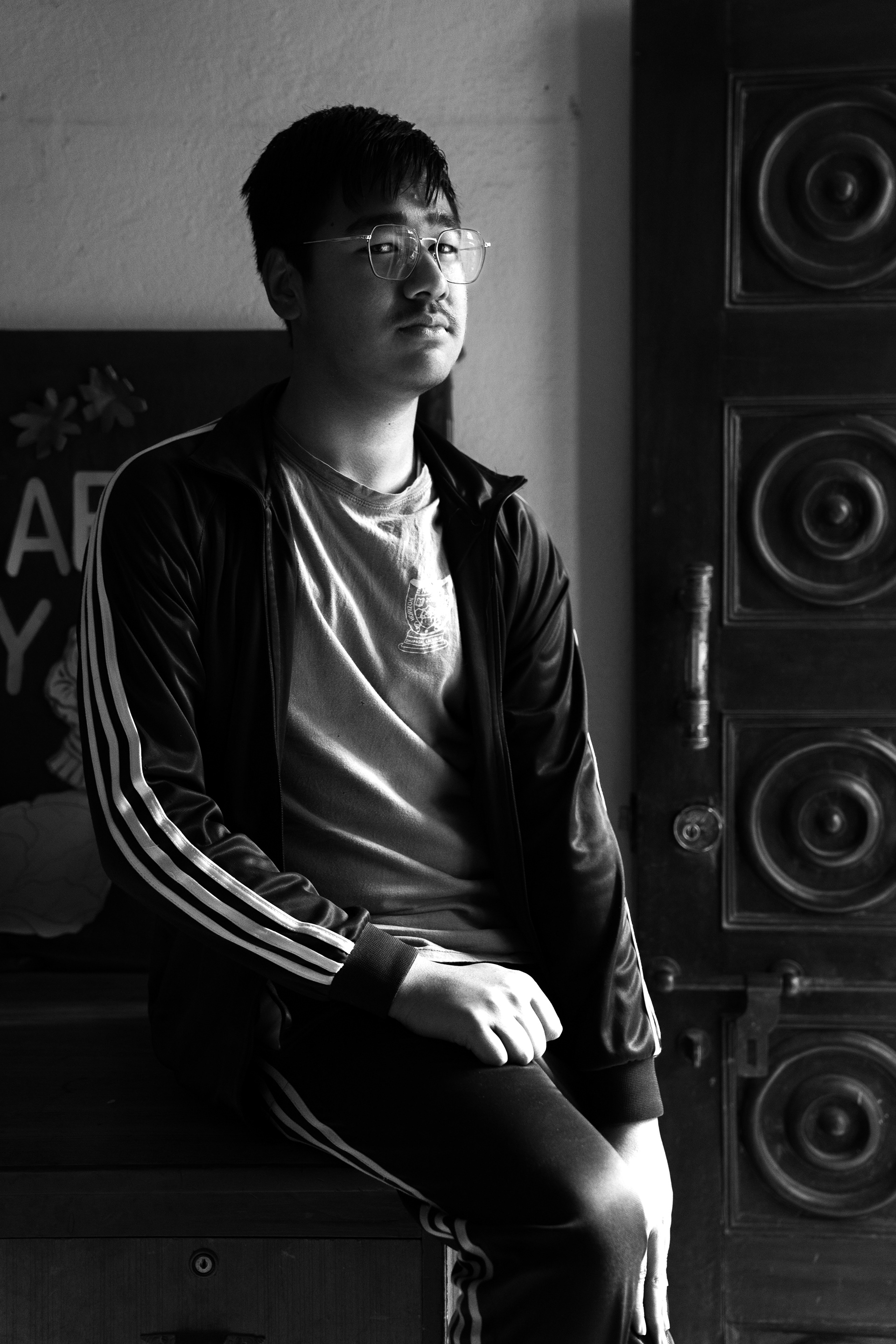
Ujjwal (16) draws a guitar on the back of the paper but quickly turns the page over. He wants to be a software engi- neer, but not in an office.